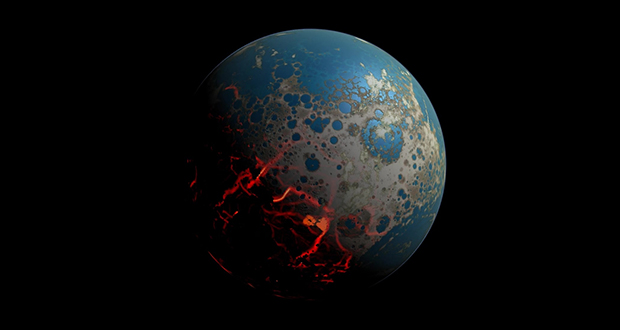1Earth

More than 4 billion years ago, Earth was hit by several objects larger than 600 miles that could vaporize the oceans and sterilize the surface yet bacterial life survived deep underground and each time recolonized the planet.
2Natural nuclear reactor

About 1.7 billion years ago, there was a natural nuclear reactor that ran for a few hundred thousand years. The existence of this phenomenon was discovered in 1972 at Oklo in Gabon in Central Africa by French physicist Francis Perrin.
3Laetoli footprints

The 3.6 million-year-old Laetoli footprints, one of the most important finds concerning human evolution and evidence of upright bipedal walking, was discovered by Paleoanthropologist Andrew Hill when he dove into the ground during the middle of an elephant dung fight with a colleague.
4Homo floresiensis

A mere 12,000 years ago a species (Homo floresiensis) closely related to modern humans had been living on an Indonesian island. They used fire and rather advanced tools, yet were only about 3 feet tall, weighing around 25kg.
5Rudists

During the late Jurassic and Cretaceous periods, the majority of the oceans reefs weren't built by corrals, but rather a group of bivalve clam like mollusks called Rudists.
6Dog and Cat species

20 million years ago in North America, the spread of ancient cats led to the extinction of many dog species. There used to about 30 canine species in North America. Only 8 remain.
7Genetic change

In the last 5 millennia, genetic change in humans has occurred at a rate roughly 100 times higher than any other period of human evolution. Humans today are more genetically different from humans living 5,000 years ago than these people were from humans living 40,000 years ago.
Latest FactRepublic Video:
15 Most Controversial & Costly Blunders in History
8Azolla

49 million years ago, a giant bloom of floating plants (Azolla) in the Arctic Ocean tipped the Earth's climate from very hot to very cold.
9Blond hair

Blond hair in humans developed only 11,000 years ago as an evolutionary response to the lack of sunlight in Northern Europe to enable more Vitamin-D synthesis.
10Rodinia

Pangaea was not the first supercontinent. That honor goes to the billion-year-old landmass known as Rodinia. The continents routinely split apart and come back together in a process known as the supercontinent cycle.




